KEMFSED grants to common interest groups for community projects have reached over Sh3.36 billion, benefitting 1,256 community projects across the five counties participating in the project.
This was after President William Ruto presented a cheque for the Sh1.7 billion awarded in the third round of funding to community groups from Kilifi, Mombasa, Kwale, Tana River, and Lamu counties in July.
The President handed over the cheques at a ceremony held on July 26, 2024, in Mombasa, where he also presented certificates to some of the coxswains trained with support from the KEMFSED Project.
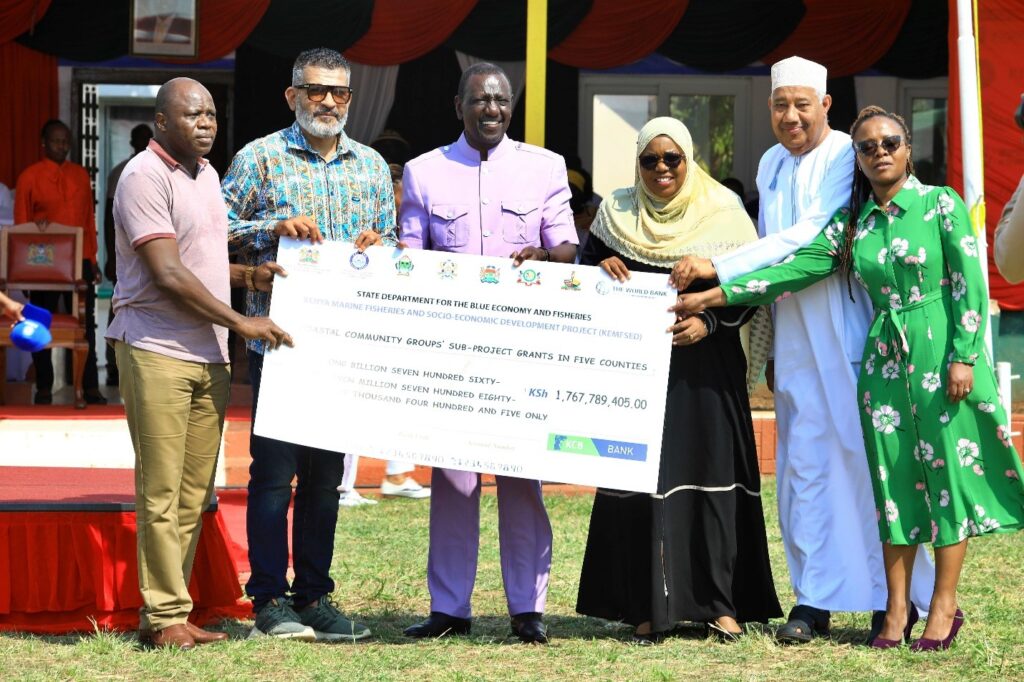
counties to Governors Godhana Dhadho Gaddae of Tana River, Abdullswamad Sherrif Nassir of Mombasa
and Kwale’s Fatuma Achani . On the right is Blue Economy and Fisheries Principal Secretary Betsy Muthoni Njagi.
KEMFSED grants are implemented under the Enhanced Livelihoods for Coastal Communities initiative, which is part of Component 2 of the project that focuses on improving the livelihoods of coastal communities that largely depend on fisheries.
The beneficiaries are organized common interest groups (CIGs), including those led by women and youth, affiliated to beach management units (BMUS). BMUs play a critical role in sustainable fisheries management in partnership with the national and county governments and other stakeholders.
Group projects to improve livelihoods include deep sea fishing and fish value addition businesses, and mariculture. There are also community projects that complement fisheries such as the rearing of indigenous chickens, dairy cows, and goats. Others are beekeeping and horticulture as well as small and micro-enterprises engaged in eco-tourism, fruit juice production, and soap-making.
Environmental projects mostly focus on mangrove forest restoration, while social projects include the construction of classrooms in local schools, community water supply, and solid waste management in urban neighborhoods.
The grants are awarded following open advertisement and a rigorous vetting process of group proposals that includes site visits to verify project feasibility and ensure only deserving applicants get the funds. The process is led by the counties and involves officials from the national government as well as representatives of communities and other stakeholders.
KEMFSED works with the counties to provide technical support to build the capacity of all the grantees to effectively implement their projects.
The beneficiary groups have already started income-generating activities that will benefit over 100,000 individuals.
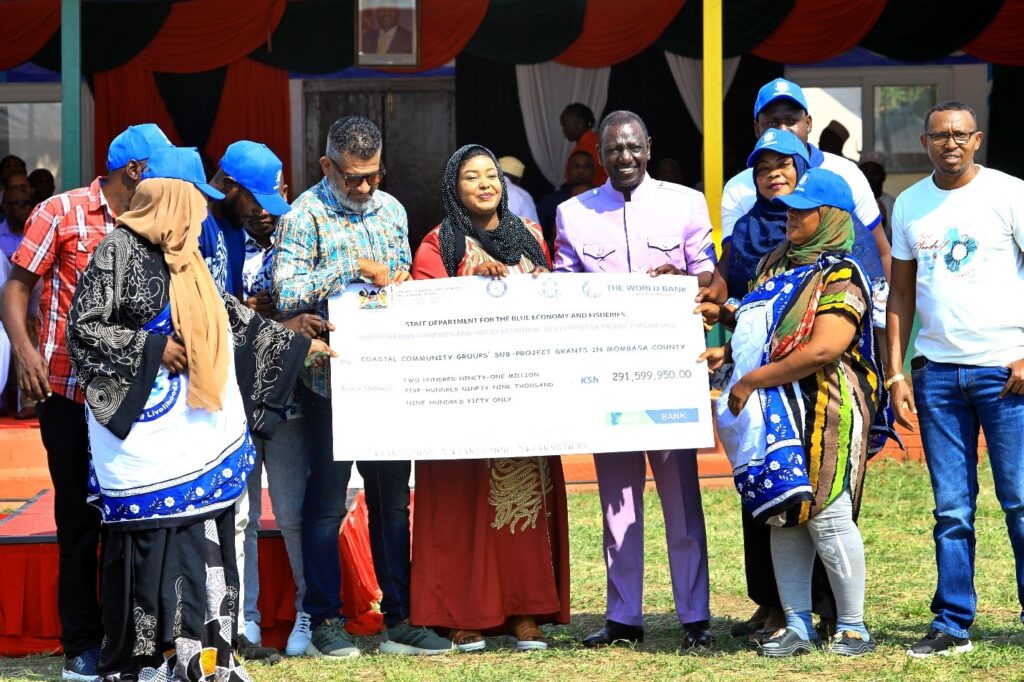
Abdullswamad Sherrif Nassir and representatives of beneficiary groups
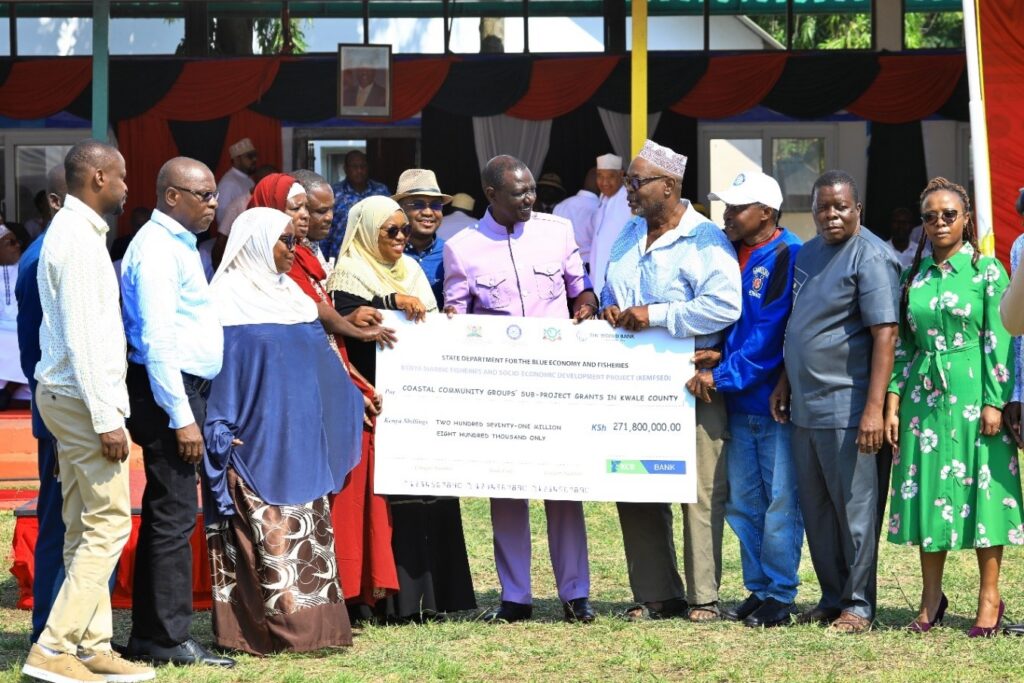
Kwale and representatives of beneficiary groups
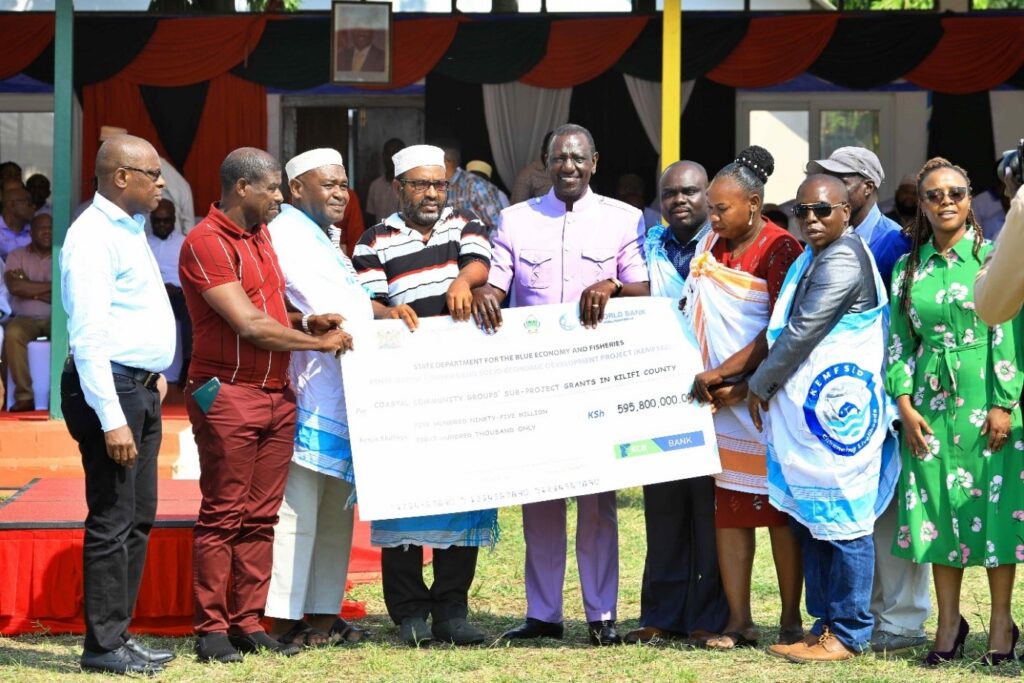
beneficiary groups from Kilifi
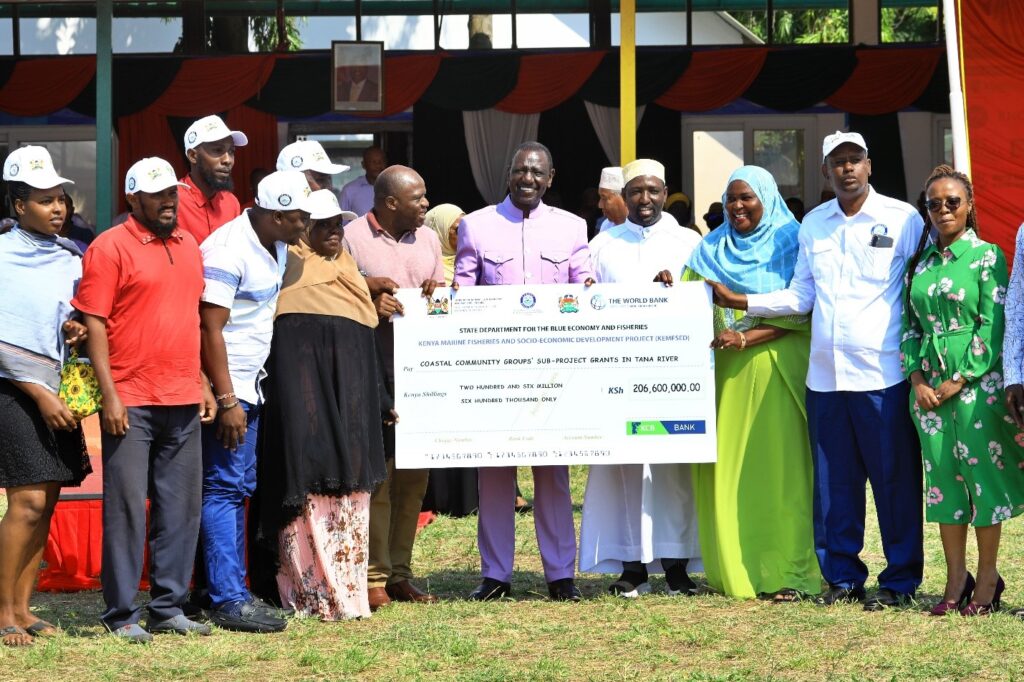
Dhadho Gaddae and representatives of beneficiary groups
